|
The first time it happened, I thought to myself Siri is a secret spy, but now I'm starting to think that Facebook is the true culprit. Several months ago, a sponsored Facebook ad for Chewy Sweet Tarts appeared at the top of my News Feed. On a normal day, fine. Perhaps I'm in Sweet Tart's target market, and I was the chosen one to receive their ad that day--moving on. However, I immediately became suspicious because at the same time, I was talking to my friend Josh about why he was so obsessed with, you guessed it, Chewy Sweet Tarts. So either this was a major coincidence, or Siri had been listening to my conversation at that moment. Ever since, I have been skeptical and keenly aware of what I search for and say in front of Siri. The same thing has happened several times since, and each time I consciously think back to the last time I ever searched for X keyword; yet, I can only remember ever saying the keyword, usually moments before seeing the sponsored ad on Facebook. For example, my roommate got a paper cut while studying last night and asked if I had a bandaid. I replied, "No, but I have some Neosporin." After settling the paper cut crisis, I opened my Facebook app and this sponsored ad (pictured below) is at the top of my News Feed. WTH! This is blog post worthy, I thought to myself. So, I did some digging. A recent Forbes article highlighted Facebook's response to a University of South Florida communications professor who conducted a simple experiment to illustrate this phenomena:
“Facebook does not use microphone audio to inform advertising or News Feed stories in any way. Businesses are able to serve relevant ads based on people’s interests and other demographic information, but not through audio collection...We only access your microphone if you have given our app permission and if you are actively using a specific feature that requires audio. This might include recording a video or using an optional feature we introduced two years ago to include music or other audio in your status updates.” Similarly, a Reddit thread went viral after a user posted about a time when he was talking to his girlfriend about killing a cockroach and a sponsored ad for pest control appeared at the top of his News Feed. The post has since been removed. Clearly Facebook is not happy with people making these claims (sorry Facebook, nothing personal!) and they are aggressively defending their policies. As a marketer, I think this stuff is fascinating, so I'm not turned off by it--I'm just curious! How does it work? How did a Neosporin ad appear at the top of my News Feed moments after I said the word "Neosporin"? Have you ever encountered a similar experience? Do you think this is a good tool for business or do you think it's just straight up creepy? Let me know in the comments!
0 Comments
It's no shocker that social media and the Internet are changing the political campaign game. Today, it's easier than ever for young people to keep up with the latest drama, errr I mean politics, through social channels. However, young people sometimes think that they are not informed enough to vote, or even worse, their excuse is that they aren't registered to vote. Over the past few months, I've noticed many companies making a push to encourage their millennial audiences to register to vote. See how these companies are getting young people to check the ballot this November: 1. TheSkimmTheSkimm's Skimm The Vote campaign is making it simple for Skimm'rs to stay informed, verify voter registration status, and even register to vote right there on their website. Seemingly, when a person uses theSkimm's registration tool, they are also asked if they want to sign up for theSkimm's daily e-newsletter. It's a win-win. On their Skimm The Vote page, they break down the facts and make it easy to understand each candidates' position on the hot topics (aka gun control, the economy, and immigration). By just clicking on this site and "skimming" the infographics, readers are instantly more informed than they were before accessing the site. As you can see below, theSkimm wants to provide it's readers with an unbiased opinion and even makes a point to highlight the third party candidates (yeah, it's not just Hillz & Donald). 2. DoSomething.orgDoSomething.org is a global organization that inspires and encourages young people to "make the world suck less." This election season, DoSomething.Com launched their "Loose Your V-Card" campaign, encouraging young people to register to vote. Through their witty social media tactics, they are able to appeal to their target market. One might wonder why DoSomething.Org is promoting loosing your v-card, only to find out that it's really a voter registration campaign. 3. Rock The VoteRock the Vote is a non-profit and non-partisan organization that has been a driving force in registering new voters since 1990. Since the 90s, their marketing strategies have changed dramatically. TheSkimm's "Skimm the Vote" site and registration tool are actually powered by Rock the Vote (hey there partner!). With social media, Rock the Vote is able to promote their events, like the one below featuring a performance by The Black Eyed Peas and TY Dolla$ign. Hosting events like this appeal to millennials and offer excellent platforms to encourage young voters to register. Have you registered to vote? There's no excuse. CLICK HERE to check and see if you're registered. If not, sign up, it's not too late!
|
Maggie JohnsonI am a digital marketing student in the Terry College of Business at the University of Georgia keeping up with the latest in social media marketing. Enjoy, share, comment, connect! Archives
February 2017
Categories |
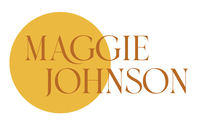
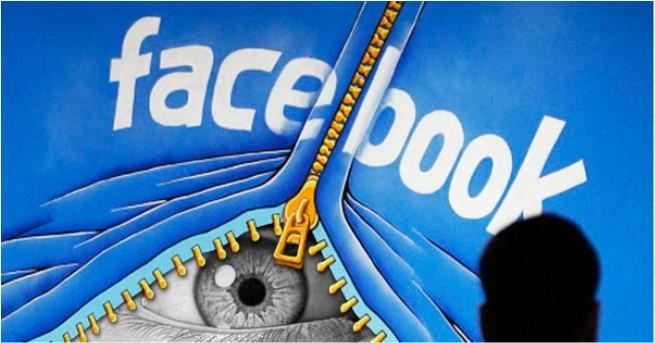
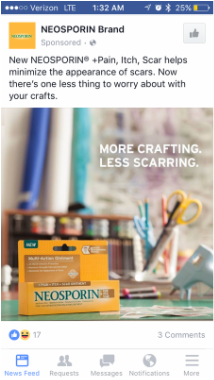

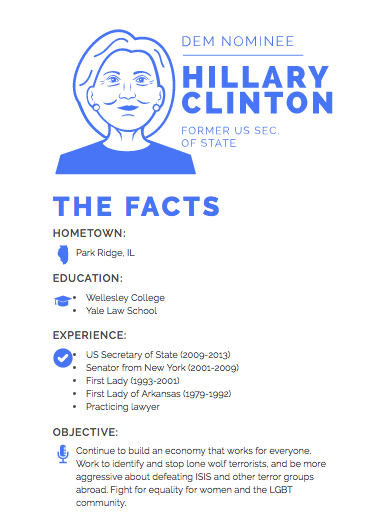
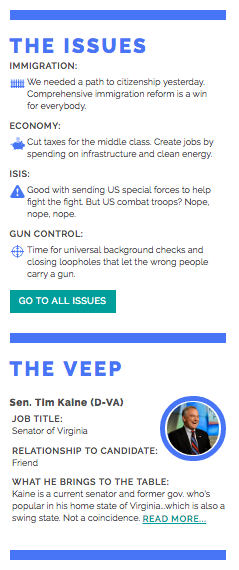
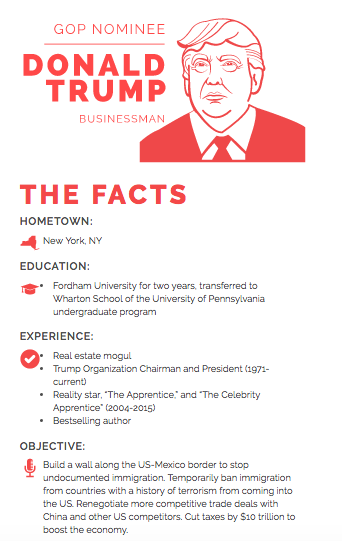
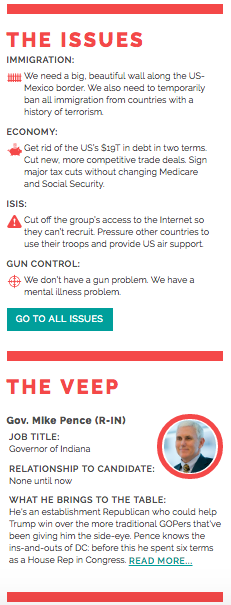
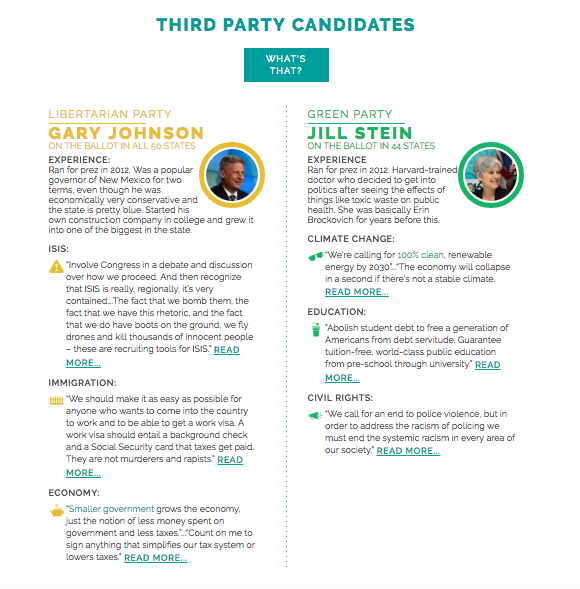
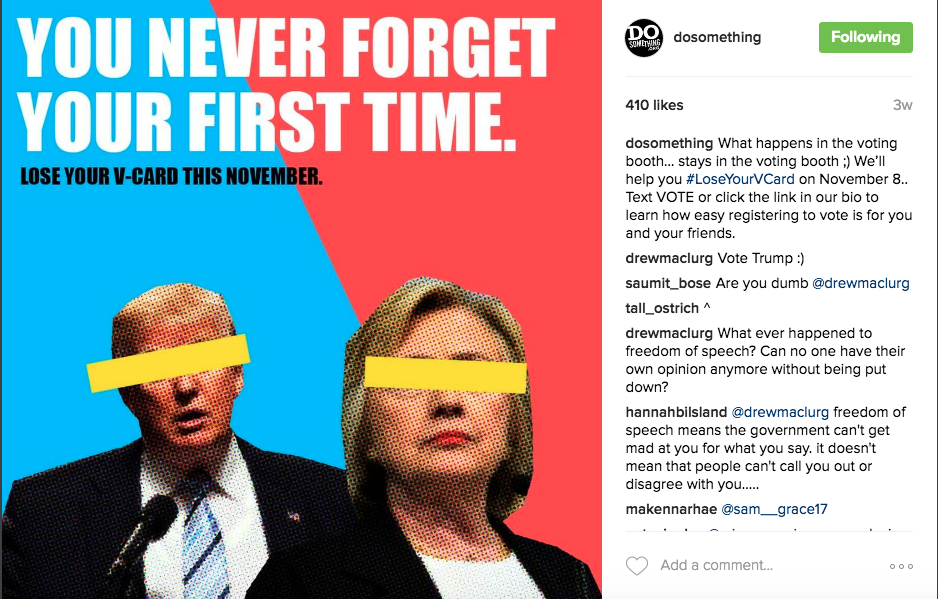
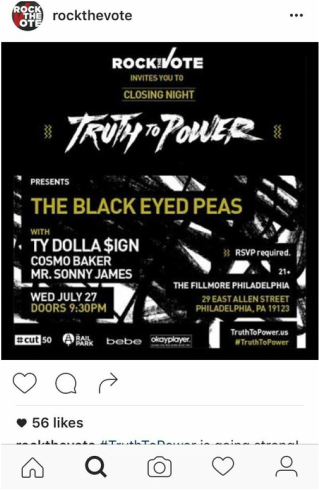
 RSS Feed
RSS Feed
